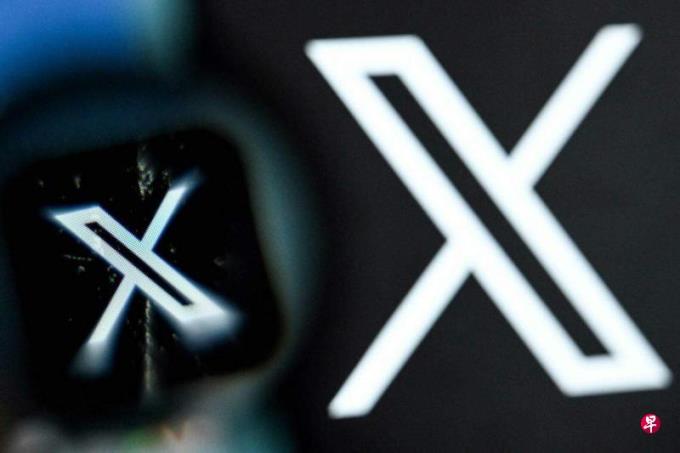
Although these media assets only account for a small part of the total assets of the rich, if the bleeding continues, it is not a long -term plan. The situation will be like Cao Cao's chicken ribs.Essence
Less than half a year before the US presidential election, but a recent investigation found that more than half of Americans have a reservation of election reports.Two weeks ago, Singapore's Ministry of the Interior and Minister of Justice, Shang Morgan, also criticized the famous British Magazine economics, and had biased reports on Singapore's reports.These phenomena will inevitably attract people's attention to the status quo of European and American media. Many European and American media are now acquired by world -class rich people, which is even more worthy of in -depth discussion.
According to a polls made by the American News Society and the Associated Press -the Norc Public Affairs Research Center at the end of March, 53%of Americans said that they are very worried that the news agency will report inaccurate or wrong information during the election;About 42%of the respondents said that the news media would use generated artificial intelligence to create news.
Economists on the 20th of last month, when reporting the news of Singapore's leaders' replacement, on the news that Singapore media was easily controlled.Shang Morgan said on a personal Facebook post and said, "Obviously, (economists) prefer the current situation of Britain, that is, a person can control the mainstream media, and politicians have to be diligent., Who Become Prime Minister "
Shang Morgan can be said to see the actual situation of the current major media in Europe and the United States.In 2015, the Economist was purchased by the Agnelli family, the Agnelli family in Italy.Regarding the credibility of news media, whether it should be attributed to the factors of the rich to control the media, it is not yet conclusive.However, many signs show that the control of the rich has had a certain degree of impact or even impact on the operation and narrative direction of the media.
Taking X (predecessor for Twitter) acquired by Musk as an example.Regardless of whether all users take the initiative to follow Musk, as long as they enter X, the upper end is the first time that the upper end is his latest tweet.When Musk bought Twitter in 2022, he even said that it had no economic significance to acquire it. He also made a proud language of "I don't care about economic benefits at all".
Musk is actually not wrong.X, as a social media, can earn income from digital advertisements, but unlike Facebook and Google, its income in this area is far less than supporting the issue price of stocks and making up for Musk's acquisition costs.In fact, many European and American media are worse than X. Since entering the 21st century, Facebook and Google have almost destroyed the considerable profits that European and American media have previously obtained from sales advertising with digital advertising advantages.Many European and American media faced the fierce competition of sales and online advertising before welcome the investment in the rich.They decided not to pay online for online access, and advertisers were reluctant to pay the same costs as digital advertising as offline advertising.These pressures have caused the media industry for some time to attract investors.
For influence and power
Until the 2010s, when more and more European and American media fell into financial dilemma or even bankruptcy, wealthy European and American rich began to get involved in this industry one after another.Jeff bezos).He bought the Washington Post in 2013, and he was suffering a lot when he took over.Putting Belosh's words at the time, his acquisition aimed at "correcting the business model of the newspaper '" upside down'. "Sure enough, in less than three years, the network traffic of the newspaper doubled, and the number of subscribers also increased, and turned into profits.
But generally believe that no matter what kind of reasons such as Musk and Bezos, and what are the reasons to explain the acquisition of the media.Influence and power.Bezos grew up in Miami and established Amazon in Seattle, and the Washington Post, as an important newspaper for the United States, has undoubtedly added its influence to Belos to radiate the country.
France on the other side of the Atlantic Ocean, Rodolphe Saade, chairman and CEO of the shipping giant Dafei Group (CMA CGM).La Provence, recently acquired the news channel BFMTV.After following the other billionaire's acquisition of media assets, Sad is well known from the former industry and transformed into a eye -catching figure in the rich circle.
Bezos is okay. He has not passed the Washington Post to publicize Amazon's brand or business interests, nor does he excessively intervene in the editing work of the newspaper, prompting him to be roughly good with the journalist of this media;The situation acquired by the rich European rich is different.French luxury giant Bernard Arnault, owner of Louis Vuitton Group (LVMH), was protested by newspapers and unions due to suspicion of expelled the editor of its business newspapers.Sad also encountered a strike protest in the Provence Daily reporter in March this year. The news editor of the newspaper was suspended due to the front page criticized President Macron, who had a close relationship with Sad.The protests did not calm down until the relevant news editor later reinstated.
The biggest problem today is that even if they have the support of these rich people who claim to have financial acuity, more and more signs also show that in the rapidly changing media pattern, the acquired media still faces the challenges of poor performance.The New York Times reported in January that despite investing a lot of funds and striving for a new source of revenue, the Washington Post, the Los Angeles Times bought by Huang Xinxiang, a Chinese entrepreneur in 2018, and Salesforce chief executive officer MarcBenioff) Magazine, which took over in the same year, lost millions of dollars last year.
Unlike the situation when the original acquisition, these wealthy media, currently facing challenges, including network traffic, declined due to the decrease in the decrease in search engines such as Google, and the emergence of new applications driven by artificial intelligence, which may further further.Eclipse their readers' groups.Although these media assets only account for a small part of the total assets of the rich, if the bleeding continues, it is not a long -term plan to continue to hold. The situation will be like Cao Cao's chicken ribs.Huang Xinxiang's spokesman admitted to the New York Times: "It is not a feasible long -term plan to rely on a benevolent owner to pay for the year."
These European and American rich people who have won the long -sleeved dance of the shopping mall can find an Avenue of Kangzhuang for its media or must be left after all, and it must be left to the time of time to decide.
(the author is a local current affairs commentator)




